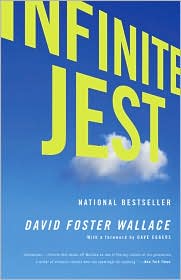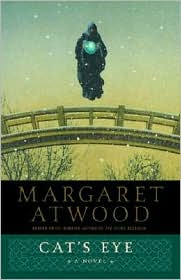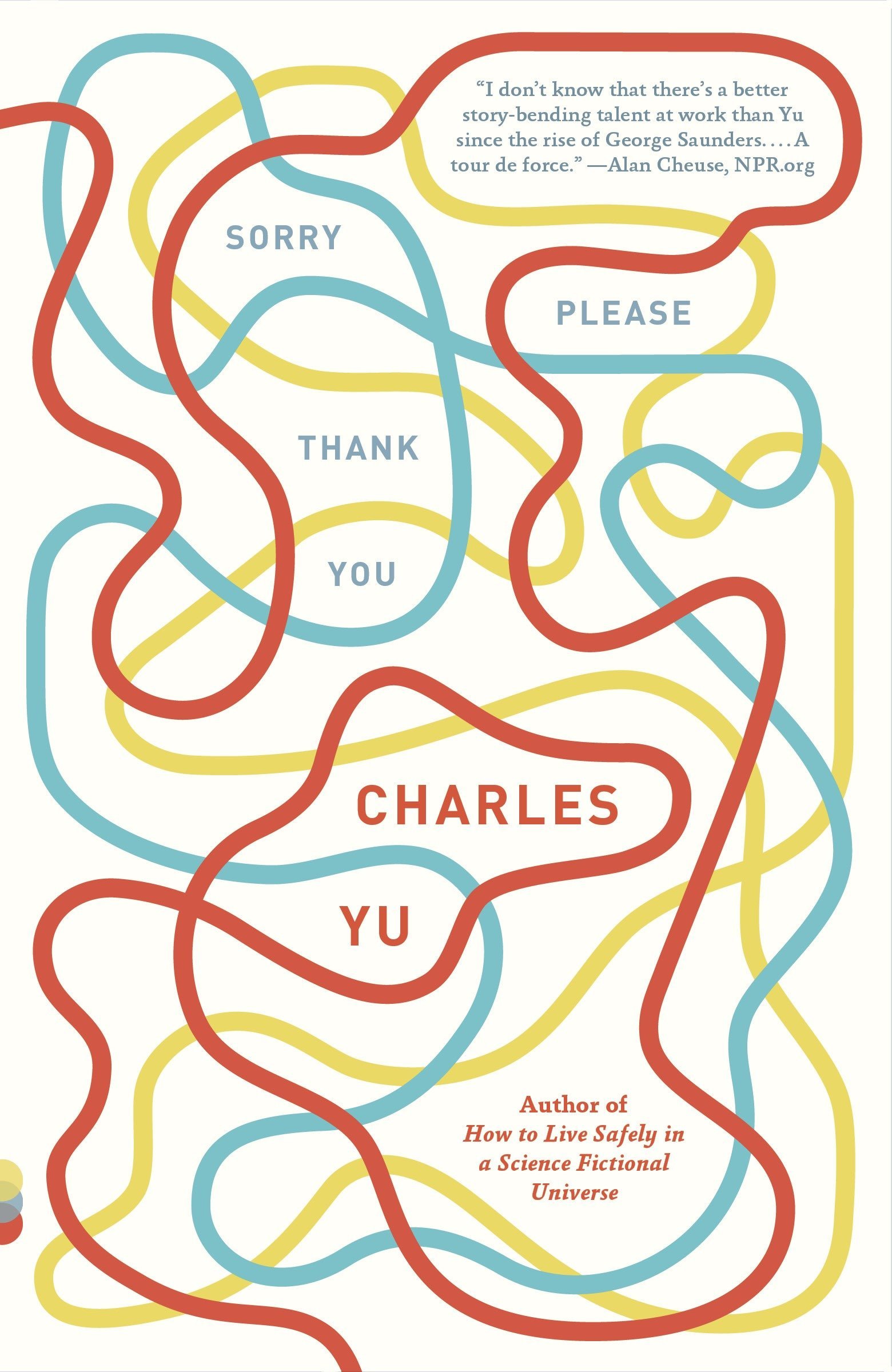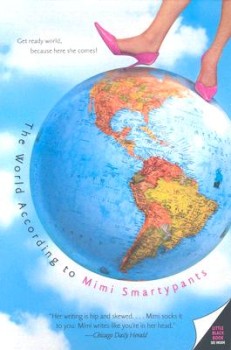 Readers are constantly being reminded that the act of reading is dying out, with “reading” being defined as “reading books published in the traditional manner.” And one of the forces cited as driving us away from the endangered Book, of course, is the Internet. But I always wonder: what does it mean that time spent on the Internet is largely time spent—well—reading? Like many writers, I do a lot of my reading on the Internet as well as in published books, and one of my favorite writers right now is a Chicago woman we know only as Mimi Smartypants. She has been writing an online diary since 1999, and in over 1000 posts she has detailed her everyday life, sharing with the world (anonymously) anecdotes about public transportation, meditations on the workings of her own psyche, and accounts of the joys and frustrations of raising her daughter, Nora, now a kindergartner.
Readers are constantly being reminded that the act of reading is dying out, with “reading” being defined as “reading books published in the traditional manner.” And one of the forces cited as driving us away from the endangered Book, of course, is the Internet. But I always wonder: what does it mean that time spent on the Internet is largely time spent—well—reading? Like many writers, I do a lot of my reading on the Internet as well as in published books, and one of my favorite writers right now is a Chicago woman we know only as Mimi Smartypants. She has been writing an online diary since 1999, and in over 1000 posts she has detailed her everyday life, sharing with the world (anonymously) anecdotes about public transportation, meditations on the workings of her own psyche, and accounts of the joys and frustrations of raising her daughter, Nora, now a kindergartner.
I don’t generally read personal blogs, partly out of an allergy to the twee self-consciousness that so easily results from self-chronicling. But when I stumbled across Mimi Smartypants’s diary a few years ago, I found that I was looking at something different from the typical navel-gazing blog. Not in terms of content—like other bloggers, Mimi Smartypants describes what she had for breakfast, her trips to Trader Joe’s, and the memos that appear on the bulletin board at work. Rather, what I experience sometimes when I read her diary is that strange phenomenon that first brought me to fiction as a child, and has kept me here all these years: the eerie way in which another human’s mind can reach across all gaps of time and distance and stranger-dom into your own mind and stir a feeling that had never been stirred there before. That sense of seeing something described that you had never seen put into words, that you would have assumed could never be put into words, yet finding that seemingly singular and resistant thing rendered perfectly specific and clear, even sonorous, and, maybe even funny. This is what I mean when I say “good writing,” and Mimi Smartypants does it.
Mimi Smartypants is often labeled a “blogger,” but I believe it’s more accurate to call her a diarist. She has more in common with Samuel Pepys and Anaïs Nin than with Perez Hilton—that is, she is a writer whose literary form is the diary, a writer for whom the chronicling of the everyday is her art. Generally, we don’t see the work of diarists until after they are dead or have become famous for something else, but the Internet seems to be changing this. In a move that seems to blur those boundaries between online writing and traditional publishing, HarperCollins UK published a book made up almost entirely of Mimi Smartypants’s online diary entries in 2004 (The World According to Mimi Smartypants); an American release followed in 2006.
This interview took place via Instant Message on July 3, 2009. Mimi Smartypants was at home in Chicago; Margaret Lazarus Dean was at a Starbucks in Knoxville, Tennessee.
Interview
MARGARET DEAN:Thanks so much for doing this—I appreciate it.
MIMI SMARTYPANTS: No, it’s cool. Kind of a surprise! I’m not used to much attention for my little thing.
It seems like you got a lot of attention right around the time the book came out—a lot of “a blogger! with a book!”
Well, sort of. But even that was a surprise. Plus it was brief, in the scheme of things. And you know how it is when you do a book—you work on it and then it comes out and you’re like, “Wow, all that feels like a long time ago.”
Isn’t it weird that you wrote about “Billie Jean” and encouraged your readers to listen to it again just a few days before Michael Jackson died?
I did notice that! I think it was more like a week and a half, but it’s a better story to say “a few days.” I don’t think I’ve ever written about Michael Jackson before. Wonder if there’s any more Smartypants-undiscussed celebrities I can curse.
Yeah, you should be careful who you write about next… Let’s talk about nomenclature. Do you call what you write a “blog”? When I think of a blog, I think of Gawker and the Fug girls, not you. What do you think of this label? Do you actively try to avoid it?
I used to really really hate the word “blog.” I have mellowed on that somewhat, but I still call what I do a diary and not a blog. To my mind, blogs are useful or single-subject or at least not nonsense direct from one person’s head. I’ve started to use “blog” as a verb, though. It’s kind of odious, but “diary-ing” doesn’t really work. Although usually I say “type” and not “write” because that’s how I think of it. Type type type and see what happens.
It seems like the whole genesis of blogs was based on commentary, not personal writing. Yet in current parlance, most people would call you a blogger, I think.
I’m sure they would. You gotta remember I started in 1999, though. It wasn’t as common a word then.
I want to ask a little about the book. You seemed to be pretty hesitant, almost apologetic, about the whole venture from the beginning. At this point, do you have any regrets about having published the book?
Hmmm—I think “regrets” is a little strong. I don’t have a problem with it being out there. I think it might have been nice to “really” write a book—if I was going to do that, I might have incorporated some diary stuff but it certainly would not have been the wholesale land-grab that HarperCollins wanted. However, I have a full-time job and a daughter (and she was really small at the time)—what they proposed seemed kind of easy come, easy go, and I wasn’t really punk rock enough to say no to it. I mean, why not? Although we won’t get into my feelings about the cover and the marketing and so forth. Unless you want to.
Oh, but I do! You mentioned on the site, and in interviews, that you had no control over the book’s cover, and that the cover really signals certain things that are not true about the book, undoubtedly confusing readers.
I totally think that. People who are attracted to the cover are probably going to be disappointed with my descriptions of intriguing alley trash. And personally, if I saw my own book on a table I’d never pick it up. It doesn’t look like my kind of thing! But that’s what I mean about easy come, easy go. It doesn’t bug me that much, although I’m sure it would have if my “book” had been something I’d worked really hard to write.
But some of the chick lit audience did respond to it. I found a review that ended with the line, “You’ll be passing this one on to your wickedest girlfriend quick as a flash.”
Who knows if that’s really “responding to it” or “writing a review that my editor told me to write,” though? I don’t remember that review in particular—if it’s on someone’s blog or something, maybe I’d believe it. I’m kind of cynical about major-magazine reviews though. Hope that doesn’t make me sound like a bitter old hag.
No, but that’s an interesting distinction to make. If it was on someone’s blog, it was for realz.
There are good book reviewers out there, certainly. But you know, like in Vogue how there will be a review of makeup and then an ad for the makeup a few pages later? I can’t believe that doesn’t happen the same way with books and movies.
Yeah, I think book reviewers at Vogue are not actually at liberty to hate the book, or do a Marxist analysis, or whatever they want to do with it. But I think you can tell if the review is really perfunctory. The review I’m quoting from was in the Buffalo News, and I have to say the reviewer did seem to get it—she quoted some quotable moments and truly seemed to enjoy the book. But the review also seemed to assume the book was firmly within the Chick Lit construct.
I do think that’s what HarperCollins wanted—(they wanted it to be “true” chick lit, I mean). It was fun to hear them push me for an ending. An ending to my diary, which is still ongoing.
In another review, I found this line: “Mimi’s book, The World According to Mimi Smartypants, is not advertised on her blog, which seems like an obvious marketing miss.” That’s such a thorough misunderstanding of what your site is about, it’s kind of breathtaking. Even just that construction, “a marketing miss,” gives me the willies.
Hee hee. Yeah. I mean, I wrote about the book when it happened, because again: it’s a diary. But a stupid sidebar with an Amazon link? I have aesthetic objections if nothing else, it just seems dorky. Although it has to be said: I don’t judge anyone for marketing themselves or whatever, and I don’t want to sound like some teenage socialist. It’s just not the way I roll, is all.
Okay, on to another Big Question. I hear a lot of talk lately about the Death of the Book and how those philistine Other Media (like your website) are stamping out everyone’s desire to read books, leading slowly but surely to the Apocalypse.
I’m particularly interested in your take on this, not only because you are a serious reader (like, at least two books a week, if your Goodreads updates are to be trusted) but also because your website was made into a book almost without your effort. (To certain people, the effortless blog-to-book phenomenon is one of the Horsemen of said Apocalypse). But a book is different from a blog, right? Having been through this experience, do you have a new definition for the difference between a book and a blog? And do you have any retort to those who blame the Death of the Book on websites like yours?
First off: I don’t think the book is in serious trouble at all. There are problems with publishing companies combining and strangling out smaller presses, and don’t even get me started on the small-bookstore problem, but people really seem to still read quite a bit. Even if I’m naive and it’s only a small segment of the population who reads like crazy, it appears to be a vocal and fairly powerful segment, anyway.
I think books and blogs are different reading experiences that satisfy different reading needs. I know when I’m fucking around online and I know when I want to settle down and read a book.
So you think the death knell is a little premature? It is true though that book sales have been slipping gradually and steadily for the last 20-30 years, and that younger people, as a group, read a lot less that older people (they read fewer books, that is).
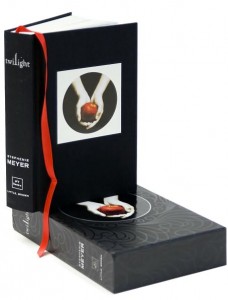 That’s probably true. But then I look at things like Twilight, or at my kid ripping through all those terrible Secrets of Droon books, and I think that young people read a lot. Again, this could be naive. And there’s no doubt that a lot of those books are crap. But young people have plenty of time for their tastes to change!
That’s probably true. But then I look at things like Twilight, or at my kid ripping through all those terrible Secrets of Droon books, and I think that young people read a lot. Again, this could be naive. And there’s no doubt that a lot of those books are crap. But young people have plenty of time for their tastes to change!
I do breathe a sigh of relief every time I see an adolescent reading a book, even if it looks really trashy.
I’ve been an admirer of your work for a long time, and I have often reflected on the way that your form, the online diary, in some ways really reveals a writer’s prose talents more than fiction does. When I write a novel or a short story, I have to write strong prose, but I also worry about structure, theme, character, whether the reader will be both surprised and satisfied by the way that things transpire, etc. This sounds harder, but every time I read your blog I think about how the form you write in offers no place to hide—if this sentence isn’t interesting, this paragraph, this observation, you’ve got nothing else to offer. The test of keeping the reader’s attention never ends. Do you feel that pressure that I imagine for you? Do you imagine a reader over your shoulder threatening to get bored?
On one level I don’t really imagine a reader at all. I write the diary because I enjoy typing, and it’s sort of a release valve, a rush to GET IT ALL DOWN. I feel a weird urge to transcribe the workings of my head, even if it’s only a teeny tiny part of what’s going on. On the other hand… I’ve kept a diary from the time I was eight years old. And if I go back to those, the Snoopy diary with the tiny feeble lock on the cover, I see my dork kid self trying to be funny, editorializing, addressing an audience, and so on. In a paper diary that I never imagined anyone would read.
So it’s kind of disingenuous to say that it’s all only for me, especially since it’s on the Internet at all. I love having the record of my life, but I also love trying to say it in the best way possible and there is a certain pleasure in knowing that some people enjoy reading it.
If I didn’t want to bother with capital-W Writing I guess I’d just write things down all fragmentary and stream-of-consciousness, like in a notebook. If I’m going to take the time to write sentences, I’m going to do it nicely!
You said a little bit ago that you just type type type and see what happens. But some of your writing feels really polished to me. Do you rewrite?
I have a rule that no entry should take longer than an hour total, from start to “publish.” Ideally I’ll have some notes and then find that free hour, but sometimes I start something and then stop, go back to it later, etc. I do go back after I’m done and tighten things up here and there, but I don’t go nuts with it, and I never go over the hour. I also play little games with myself—like if I write an entry on a Thursday I’m not allowed to delete anything, and have to run with every thought—I can fix typos but that’s all. (Okay, I’m outing myself as a weirdo now.)
No-delete Thursday is real?
IT’S TOTALLY REAL!
I liked what you said a little bit ago about capital-W writing, that there’s no point to doing this if you aren’t going to do it well. What’s the difference between this capital-W writing and the writing you’d do if you were to write a “real” book, as distinct from the HarperCollins landgrab? In other words, you’re bringing your A game to the online diary, but bringing your A game to the book project would be different—but how?
I’m not sure if I’d ever do such a thing, to be honest. I have never been a fiction writer—I did a poetry concentration in college, and I’ve always kept these ridiculous diaries. If they had had something like “creative nonfiction” when I was in school, I probably would have been all over it. I really like having an assignment—in another life and with some different training I can see myself being good at some type of long-form journalism.
If I had had more control over the blog-to-book project, I may have tried to shape it into…well, into more of a shape, rather than just the straight diary thing. But then again, if I had had more control over the blog-to-book there never would have been a book, so there you go.
Okay, this is a tough one: how do you think your writing fits into Literature as a whole? A better way to put this is: 500 years from now, what sort of paper will undergraduates be assigned to write about your oeuvre?
It might not even fit into Literature, or maybe it would be cross-referenced with 21st-century studies or something. Really, it’s a record of how a certain sort of person (overeducated, slightly neurotic, working mother, any one of thousands of labels you could apply) lives and writes in these weird times. And it’s all kind of metafictional, since I’m consciously chronicling at the same time I’m living it. That would be a pretty cool paper to write, actually. Where’s my time machine?
This kind of document has always been fascinating to historians, anthropologists, psychologists, even—but what keeps bringing me back is the writing, the stuff I teach in the English department. I wonder if you see it as English department material, though, or if that’s part of the distinction you see in writing a “real” book.
Intent is the distinction I see in writing a “real” book. The book was sort of thrust upon.
Right, but if you were to intend to write a real book, and then do so, it would be (presumably) one that could be taught as Literature? Or maybe I’m trying to get you to play a game of taxonomy that’s ultimately pointless.
Maybe you are! I guess I just don’t spend a lot of time trying to slot my diary in among literature. The Future People may do it, but who thinks about that while they’re writing?
But it’s ultimately of some importance how we classify things, because I think your online diary is of more literary import than a lot of “real” books I see. And I’m not sure what to do about that.
Oh, there are certainly shitty books out there, and there are certainly awesome blogs that outshine them. But that’s kind of the case with everything, you know? There are YouTube videos that are better than many million-dollar movies.
Once in a while you mention comments that readers have made via e-mail. (There is no comments field, which we’ll get to). I’m always a little shocked by these mentions of e-mails, because it strikes me as weird that some readers take it upon themselves to write you and—for instance—criticize your approach to raising your child. That seems outrageously rude—but then again, you started it, right? By writing about these things in the first place on the Internet?
I love getting e-mail. I’d prefer ones that didn’t say I’m a crappy mom or whatever, but I encourage e-mail and have built up some cool correspondence with strangers that way. Getting an e-mail that says “YOUR [sic] STUPID” is a little frowny-face-inducing, but whatever. The good outweighs the bad. It’s a nice feature of “blogging.”
Have you ever been actually weirded out or upset by an e-mail?
I had someone do a ton of sleuthing and find out where I worked, which was kind of uncool. And I had someone sending me elaborate sexual fantasies, although that was years ago. But no, it didn’t upset me, it was just dumb.
When you first started the site, most (maybe all?) such sites were too primitive to offer commenting. Just today you moved to your own domain, where you could have added commenting, but you chose not to.
I hate comments. I have many reasons why. Shall I?
Please.
First off, I’ve always thought of my diary as sort of an extension of the lengthy letters/e-mails I would send to a really good friend. Comments tend to dilute that one-to-one feeling. In-groups and cliques develop, people have this weird need to be FIRST! and so forth.
Also, commenters end up talking to each other. Someone will say something crummy (and this happens a lot more often where it’s anonymous and easy than where someone actually has to put keyboard to e-mail client), and then other commenters rush in to defend, and suddenly it’s a whole other conversation. I want to write my diary, not moderate a forum.
Right— it becomes a conversation among commenters.
I don’t have time to moderate comments or block the crummy people or crap like that. I write something, it’s done, you’re free to e-mail me and tell me what you thought—but let’s keep it between us, okay reader?
I have to admit, I don’t want to see comments on your site. I don’t really want to hear what other readers have to say to you, whether they agree or disagree. It interferes with the monogamous writer-reader relationship.
Hmmm, maybe that’s part of what makes my site feel more “literary” to you? The writer/reader no comments thing?
I’m not sure— I don’t think the quality of the actual posts is diluted by having other voices present. But I do want to be left alone with my own impressions and not immediately have to begin processing other people’s opinions.
Also: “monogamous,” I love that. Forsaking all others, baby.
Nabokov once said he was strictly homosexual when it came to translators of his work. Which was really assy, but it stuck with me.
That’s a funny quote. I imagine translation to be a really tricky thing. The Smartypants book made it into Russian and Portuguese—I really hope it’s funny in those languages.
Are you serious? Russian and Portuguese? I’m trying to make sense of why it would be those two languages. Why not Spanish, Mandarin…?
I assume it’s just the long robo-reach of HarperCollins and its acquisitive international licensing department.
The Russian cover is amazingly gaudy. I haven’t seen the other one.
I have a good friend who reads Russian and I’m now dying to get her the book so she can find howlers in it.
Do you have any plans for the ten-year anniversary?
Oh yeah! Ten years! Not really. I’ll mention it, I’m sure. In the sense of NOW WOULD BE A GOOD TIME TO STOP BUT I WON’T.
I guess moving to your own domain is one way to celebrate. Why did you finally do that?
Serendipity and Matthew Baldwin (defective yeti). I wrote some crud for Infinite Summer and he was like, “How can I repay you” (dude, it is no trouble for me to wax overenthusiastic about David Foster Wallace) and then he pointed out, “Well you own this domain” (the magic of WHOIS) and “Why don’t you use it” and “I could set it up for you.” And then I got all giddy like a schoolgirl and said sure.
In a way I’m sad to see you leave the original format. There’s something sweet about the antiquated look of it.
I’ve seriously owned the domain forever and have always just been too intimidated to leave Diaryland. It wasn’t as easy to set up a blog back in the day. There has been a certain retro pride in hanging around a dinosaur like Diaryland, but WordPress is really fun to use.
I’m excited to see what you do with it. Thanks so much for doing this!
Have a good afternoon! Thanks to you, too.
Final Notes
– In the spirit of FWR contributors, some books Mimi recommends are Crime and Punishment (Fyodor Dostoyevsky), Infinite Jest (David Foster Wallace), Lucky Jim (Kingsley Amis), and Cat’s Eye (Margaret Atwood).
– Pick up a copy of The World According to Mimi Smartypants at your local independent bookseller.

